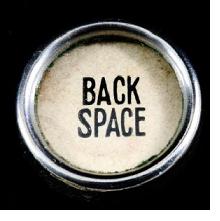 In our current economy, more and more people are being driven out of the traditional workplace and into contract positions, freelance gigs and other arrangements formerly the exclusive territory of the full-time freelancer.
In our current economy, more and more people are being driven out of the traditional workplace and into contract positions, freelance gigs and other arrangements formerly the exclusive territory of the full-time freelancer.
What’s going to happen to freelance writers in 2009? From where I sit, it will be a combination of “more of the same” and a major shift to the Internet from the newsstand.
I remember when the dot com bubble burst back in the late 90s, and many net workers were out of a job after being paid staggering sums by overvalued .com companies. The dot commers killed themselves inthe late 90s because companies that had nothing to sell were getting mad startup money, tricking out their offices with pool tables and video games, and basically driving themselves into the ground.
Now we see the inverse happening damn near exactly ten years later–solid companies with much to offer are being pulverized while companies selling dollar electronic widgets (see the iPhone App store for a great example) are thriving. What does any of this mean for US?
Two big things spring to mind. If your website still looks like a web 1.0 dinosaur, you’ve got trouble coming. What is the sound of no mouse clicking? That zen riddle I just made up is something you’ll be pondering next year unless you get into web 2.0-land. Things are shifting to the net so completely that some people are actually discussing the “death of bookstores”.
The second thing–which is already happening to my fellow freelancer pals in some quarters–is that there will be a larger tidal wave of ridiculous freelance clients out there who actually expect you to take the penny-per-word rates they offer. Folks—one cent per word is what NOOB FICTION WRITERS make. Not freelancers who deal in non-fiction, e-commerce, SEO writing or other skilled areas.
There are plenty of people who will settle for these rates. I strongly urge you to re-evaluate your rates NOW and tell clients who want you to accept their peanuts for your hard work a polite version of the following:
“I understand your need to keep your overhead low and I am happy to work with you on a volume discout basis, but I also want to explain someting to you: with today’s SEO environment, you GET WHAT YOU PAY FOR. You will find a writer willing to write for a penny per word, I assure you. I can also assure you that NOBODY WILL TAKE THAT WRITING SERIOUSLY. You may get the right attention from Google, but when HUMANS read that crap, they will click away from your page. Today’s market is not just about Google placement–it’s about CONVERSION. What good does 10,000 unique visits do you if you have 0% conversion from those visits?”
I could rage on about this, but why bother? Everything you need to know (in this context) is in those last two sentences.
 Drew Kerr’s article, Three Words Every PR Pro Should Ban at Ragan.com got my wheels turning. I didn’t even need to read the whole thing to know there was a screed coming.
Drew Kerr’s article, Three Words Every PR Pro Should Ban at Ragan.com got my wheels turning. I didn’t even need to read the whole thing to know there was a screed coming.
 I just helped an old friend out, giving her what I’d call a narrow escape. I had just gotten back in touch with someone I hadn’t seen in years…when catching up, I learned she was working on her first three chapters of a novel that PublishAmerica expressed an interest in.
I just helped an old friend out, giving her what I’d call a narrow escape. I had just gotten back in touch with someone I hadn’t seen in years…when catching up, I learned she was working on her first three chapters of a novel that PublishAmerica expressed an interest in. Mark your calendars, April 15, 2009 is fast approaching. Tax time is hell time for most freelancers, but here’s a little hint that will make tax season 2010 seem like a breeze. Grab your pens, kids, this one’s a real brain tickler.
Mark your calendars, April 15, 2009 is fast approaching. Tax time is hell time for most freelancers, but here’s a little hint that will make tax season 2010 seem like a breeze. Grab your pens, kids, this one’s a real brain tickler.